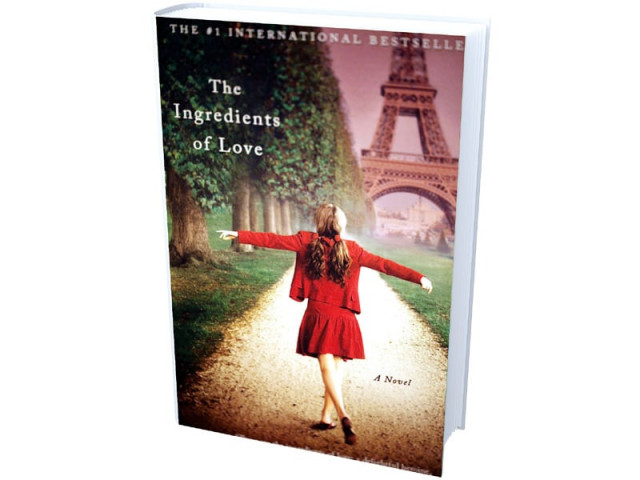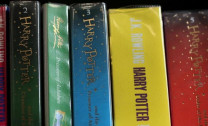Book review: The ingredients of love - faking it till you make it in Paris
A German author writes under a pseudonym to create an international best-seller — also based on a ghost writer.

A German author writes under a pseudonym to create an international best-seller — also based on a ghost writer.
Barreau’s protagonist is a thirty-something Parisian restaurateur named Aurélie Bredin who wakes up one day to find her eccentric lover of two years gone forever. In the past, Aurelie had wilfully ignored Claude’s disappearing acts. However, this time she knows it’s different especially after she finds a devastatingly short note from him saying that he had finally met “the woman of his dreams”.
The heroine, spiralling in a never-ending vortex of self-pity and humiliation, wanders the rainy streets of Paris until she reaches a small bookstore in Ile Saint Louis. It is here that the novel The Smiles of Women written by a relatively unknown English author Robert Miller, calls out to her. Aurelie brings it home and reads it cover to cover, only to discover that the book is actually a tribute to her smile and her restaurant Le Temps des Cerises (The time of the cherries).
With a drastically transformed perspective on life and fate, she pledges to find the man behind the novel just to let him know that he saved her in her bleakest time. But reaching this writer, who supposedly lives in a romantic English cottage with his terrier, seems close to impossible. For one thing, the English writer Robert Miller does not really exist. He’s the literary creation of Andy Chabanais — the editor-in-chief at a French publishing house.

Chabanais had written the novel on a drunken whim under the name of Robert Miller as he knew an English author’s story about Paris would be a hit with a female audience. But as luck would have it, The Smiles of Women, takes off and now Andy Chabanais is receiving incessant calls from journalists for interviews. Bookstores want the Robert Miller to fly in to Paris for readings. This is the formula for disaster; Chabanais finds himself in the presence of the woman who had inspired him to write the novel but he cannot tell her who he really is.
Funnily enough, the book’s biggest failing is Aurélie herself, who appears to be a strangely one-dimensional and gullible character. Somehow, the unassuming French editor manages to win the affection of the reader quicker than the quirky heroine.
Ingredients of Love is reminiscent of Chocolat, a 1999 novel by Joanne Harris, as it is replete with beautiful descriptions of French cuisine and actual recipes at the end of the book. It also offers a unique insight into the French publishing world.
While it is supposedly written by a man, it is easy to tell that the writer is a female. This may have something to do with the fact that Nicolas Barreau is a pseudonym for a well-known literary figure widely speculated to be German author Daniela Thiele.
The Parisian Life: À la recherche du temps perdu
Murder on the Eiffel Tower

The first in a series of six Parisian murder mysteries by Claude Izner, Murder on the Eiffel Tower, captures the death of a woman on this great Paris landmark. The cause of her death is initially traced to a bee-sting. But is that really so?
Paris Peasant

In Paris Peasant (1926) hardcore communist, Louis Aragon, effectively uses surrealist writing to paint a beautiful picture of Paris. He consciously uses the city as a framework and interweaves his text with images of related ephemera: café menus, maps, inscriptions on monuments and newspaper clippings.
Le Temps des Cerises

Zillah Bethell tells the story of Eveline, a young woman, set in the background of the Franco-Prussian War in 1870. She is engaged to the romantic Laurie, but is drawn towards his friend, Alphonse, who is plotting to break the siege. The author’s vibrant prose and dramatic imagination make the book an enjoyable read.
Published in The Express Tribune, Sunday Magazine, August 25th, 2013.
Like Express Tribune Magazine on Facebook, follow @ETribuneMag on Twitter to stay informed and join the conversation.



















COMMENTS
Comments are moderated and generally will be posted if they are on-topic and not abusive.
For more information, please see our Comments FAQ